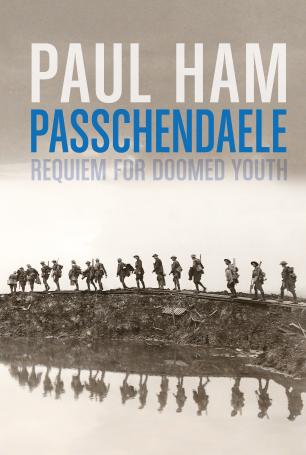Passchendaele: Requiem for Doomed Youth
2018 Winner

Judges' comments
The nondescript Flemish village of Passchendaele (its name an allusion to Christ’s Passion) was of no great strategic importance, and yet it was the setting for some of the most horrifying, blood-drenched and mud-choked battles of the First World War — battles in which many thousands of Australians and New Zealanders were sacrificed by their British leaders. The precise qualities of horror involved are evoked here in a mosaic of contemporary eyewitness reports, letters and other documents, and the conflict is shown from the point of view of the generals and officers as well as the common soldiers on both sides of the trenches.
From the immense body of material he has assembled, Paul Ham has come to the conclusion that the ‘needlessly prolonged … tragedy of Passchendaele’ owed largely to the ‘poisonous relationship’ between England’s Prime Minister David Lloyd George and his military commander-in-chief Field Marshall Sir Douglas Haig. Published to coincide with the centenary of that tragedy, this epic work is a painstakingly detailed illustration of the terrible consequences that can follow from such tensions between an elected government and its military leader.
Passchendaele is both a moving examination of the suffering of individuals within this worldwide catastrophe and a skilful exploration of the large-scale political machinations that created it. In his meticulous description of the events and miscalculations that led to its pointless bloodshed, Ham cleverly and subtly reminds us of the continuing relevance of this long-past battle to government decision-making today.